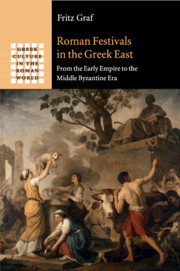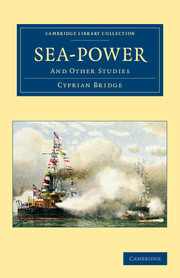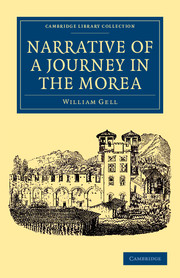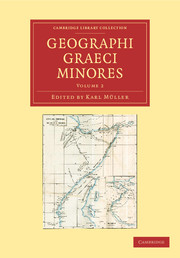Refine search
Actions for selected content:
23990 results in Ancient history
Chapter 1 - Greek city festivals in the Imperial age
- from Part I - Festivals in the Greek East before Constantine
-
- Book:
- Roman Festivals in the Greek East
- Published online:
- 05 November 2015
- Print publication:
- 05 November 2015, pp 11-60
-
- Chapter
- Export citation
Chapter 13 - The Arkadian Confederacy
-
-
- Book:
- Federalism in Greek Antiquity
- Published online:
- 05 November 2015
- Print publication:
- 05 November 2015, pp 250-268
-
- Chapter
- Export citation

Roman Festivals in the Greek East
- From the Early Empire to the Middle Byzantine Era
-
- Published online:
- 05 November 2015
- Print publication:
- 05 November 2015
Chapter 2 - Roman festivals in eastern cities
- from Part I - Festivals in the Greek East before Constantine
-
- Book:
- Roman Festivals in the Greek East
- Published online:
- 05 November 2015
- Print publication:
- 05 November 2015, pp 61-102
-
- Chapter
- Export citation

Sea-Power
- And Other Studies
-
- Published online:
- 05 November 2015
- Print publication:
- 22 August 2013
- First published in:
- 1910
Chapter 22 - The Lykian League
-
-
- Book:
- Federalism in Greek Antiquity
- Published online:
- 05 November 2015
- Print publication:
- 05 November 2015, pp 403-418
-
- Chapter
- Export citation
Introduction
-
- Book:
- Roman Festivals in the Greek East
- Published online:
- 05 November 2015
- Print publication:
- 05 November 2015, pp 1-8
-
- Chapter
- Export citation

Narrative of a Journey in the Morea
-
- Published online:
- 05 November 2015
- Print publication:
- 29 December 2011
- First published in:
- 1823

Geographi Graeci minores
-
- Published online:
- 05 November 2015
- Print publication:
- 28 April 2010
- First published in:
- 1861
Chapter 2 - Federalism and ethnicity
-
-
- Book:
- Federalism in Greek Antiquity
- Published online:
- 05 November 2015
- Print publication:
- 05 November 2015, pp 30-48
-
- Chapter
- Export citation
Chapter 4 - Contested festivals in the fourth century
- from Part II - Roman festivals in the Greek East after Constantine
-
- Book:
- Roman Festivals in the Greek East
- Published online:
- 05 November 2015
- Print publication:
- 05 November 2015, pp 128-162
-
- Chapter
- Export citation
Preface
-
- Book:
- Federalism in Greek Antiquity
- Published online:
- 05 November 2015
- Print publication:
- 05 November 2015, pp xiii-xv
-
- Chapter
- Export citation
Chapter 9 - Christian liturgy and the imperial festival tradition
- from Part II - Roman festivals in the Greek East after Constantine
-
- Book:
- Roman Festivals in the Greek East
- Published online:
- 05 November 2015
- Print publication:
- 05 November 2015, pp 226-238
-
- Chapter
- Export citation
Chapter 21 - The Italiote League and southern Italy
-
-
- Book:
- Federalism in Greek Antiquity
- Published online:
- 05 November 2015
- Print publication:
- 05 November 2015, pp 386-402
-
- Chapter
- Export citation
Preface
-
- Book:
- Roman Festivals in the Greek East
- Published online:
- 05 November 2015
- Print publication:
- 05 November 2015, pp xiii-xiv
-
- Chapter
- Export citation
Chapter 1 - An introduction to federalism in Greek antiquity
-
-
- Book:
- Federalism in Greek Antiquity
- Published online:
- 05 November 2015
- Print publication:
- 05 November 2015, pp 1-29
-
- Chapter
- Export citation
Glossary
-
- Book:
- Roman Festivals in the Greek East
- Published online:
- 05 November 2015
- Print publication:
- 05 November 2015, pp xv-xvi
-
- Chapter
- Export citation
References
-
- Book:
- Roman Festivals in the Greek East
- Published online:
- 05 November 2015
- Print publication:
- 05 November 2015, pp 323-354
-
- Chapter
- Export citation
Chapter 24 - Forerunners of federal states: collaboration and integration through alliance in Archaic and Classical Greece
-
-
- Book:
- Federalism in Greek Antiquity
- Published online:
- 05 November 2015
- Print publication:
- 05 November 2015, pp 434-451
-
- Chapter
- Export citation
Chapter 15 - Traces of federalism in Messenia
-
-
- Book:
- Federalism in Greek Antiquity
- Published online:
- 05 November 2015
- Print publication:
- 05 November 2015, pp 285-296
-
- Chapter
- Export citation
